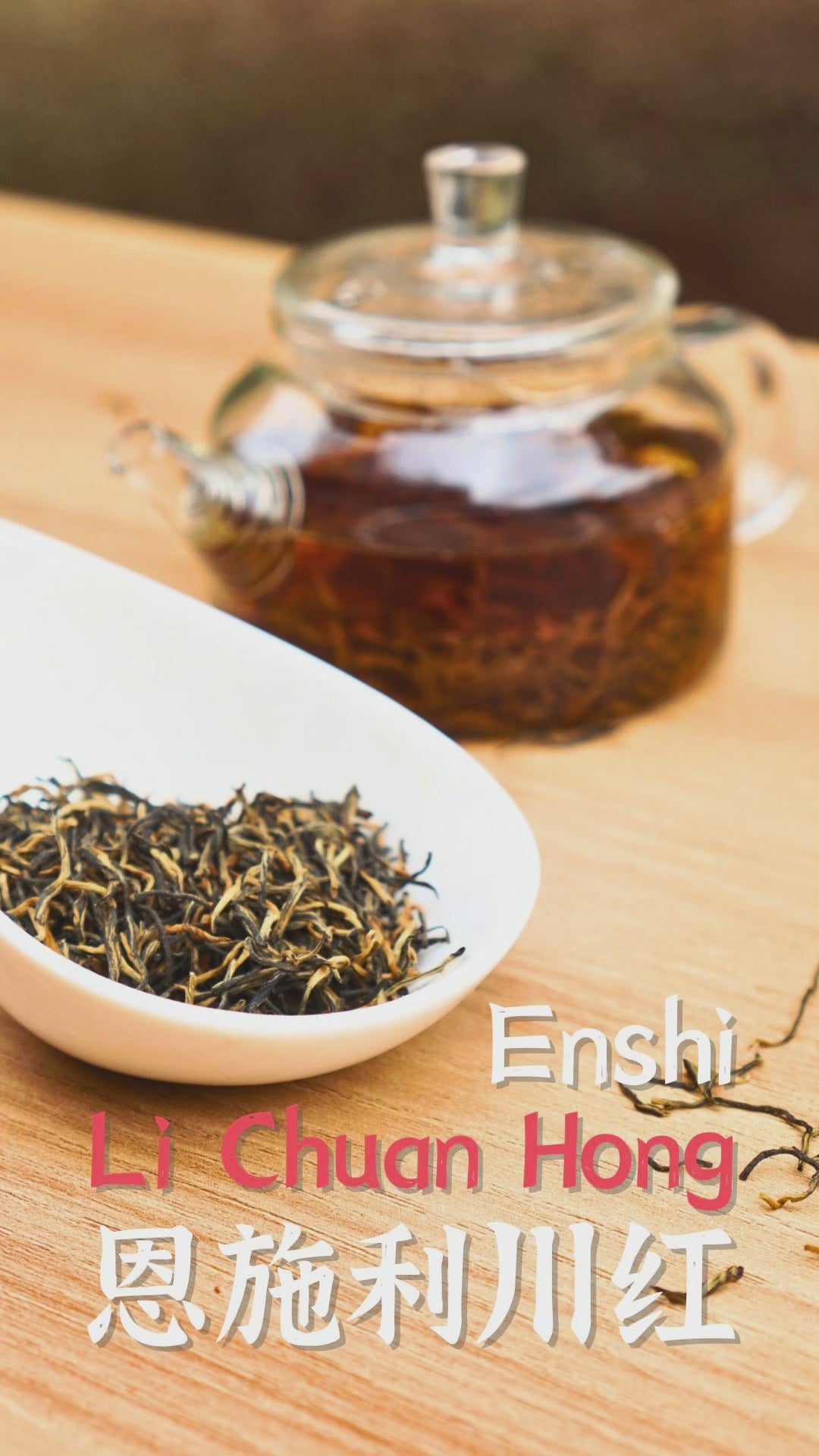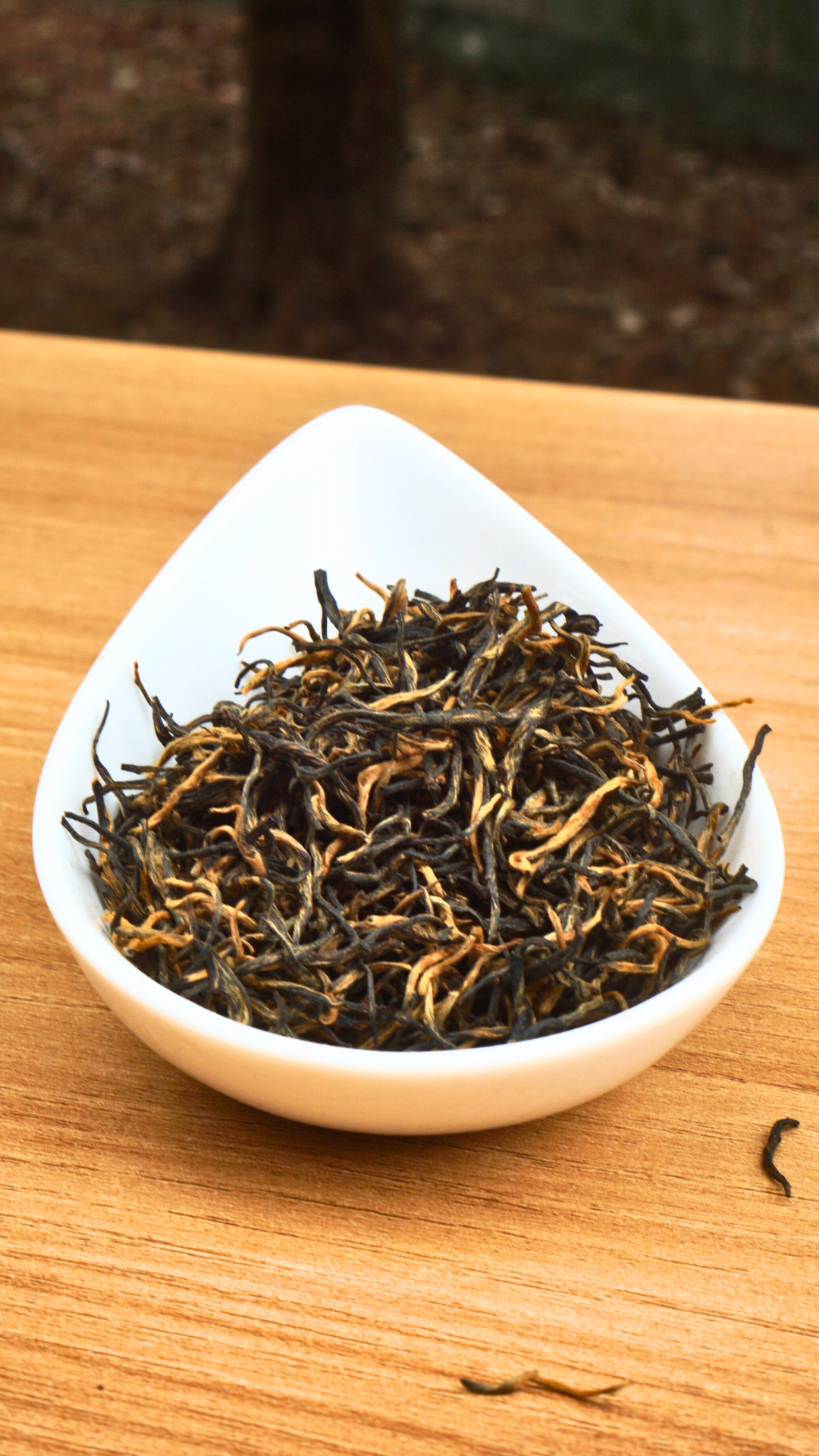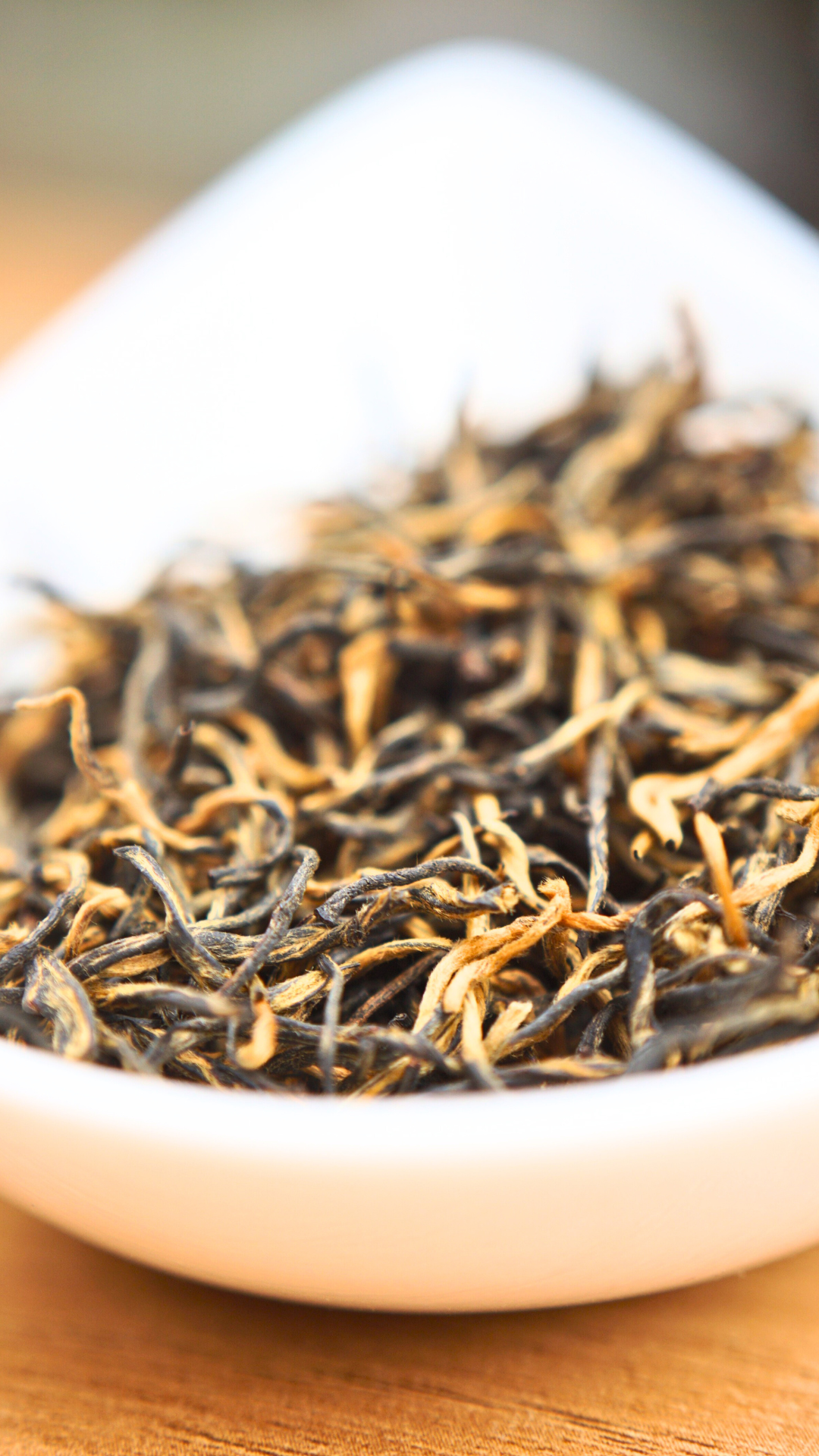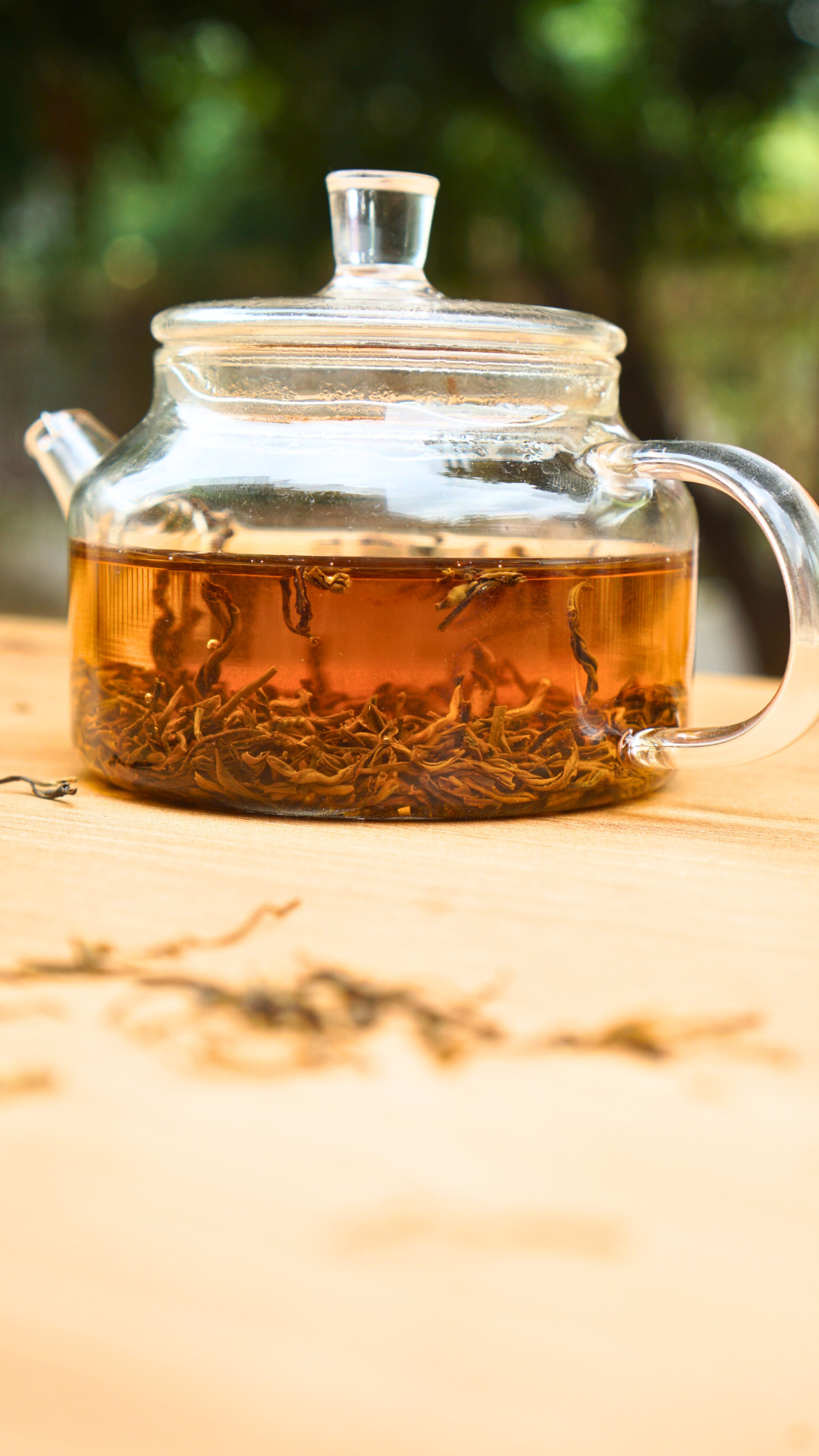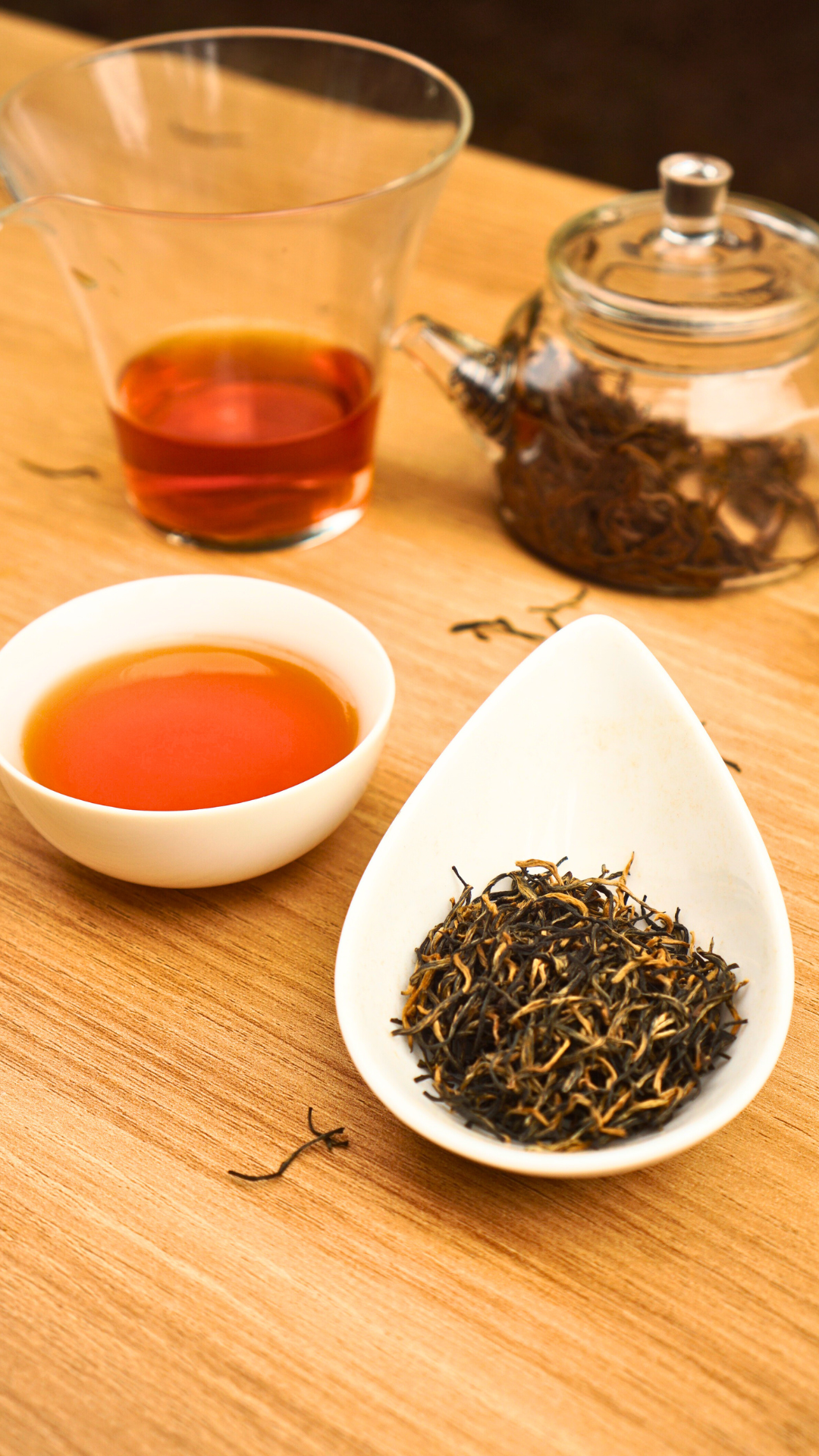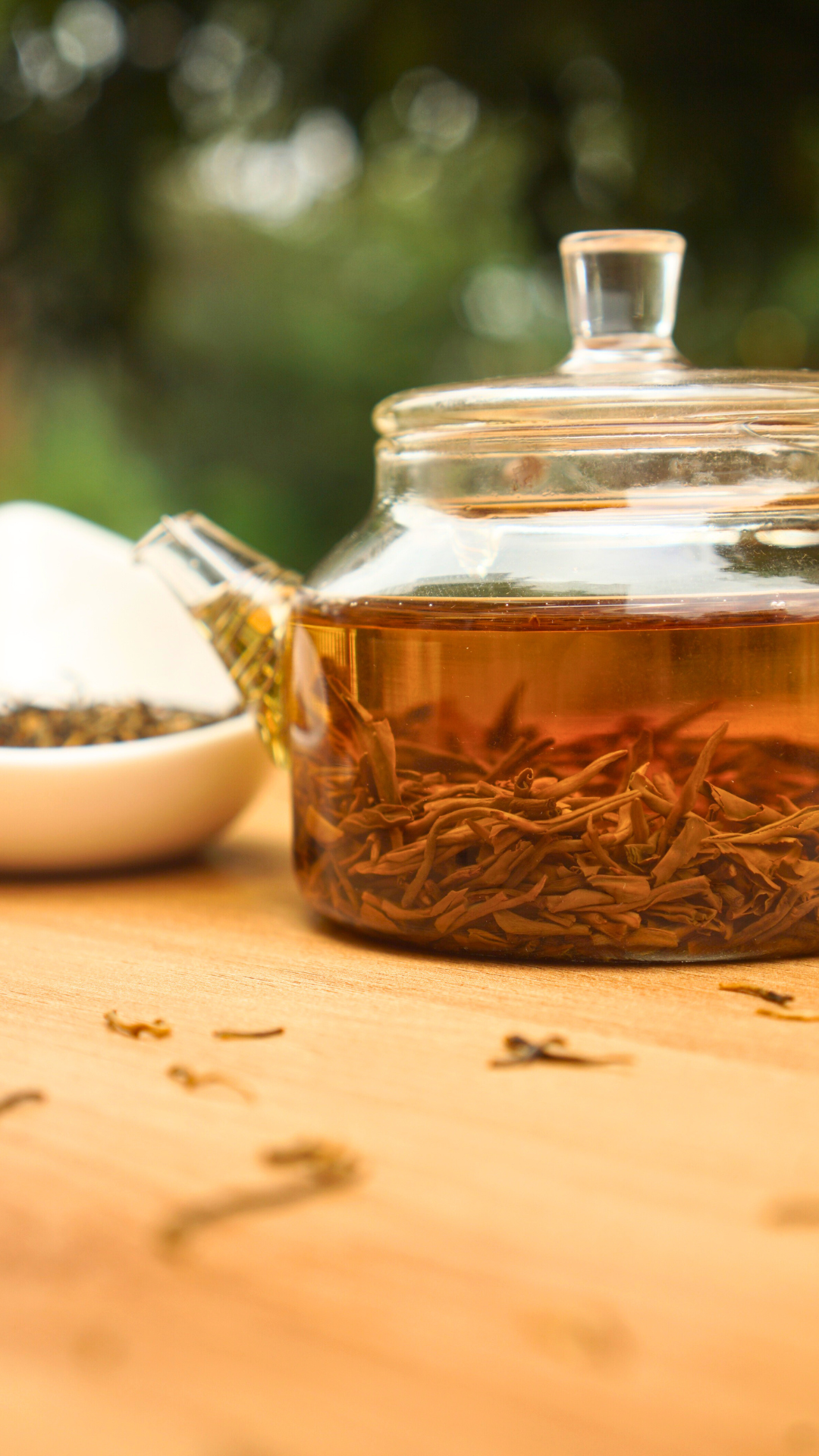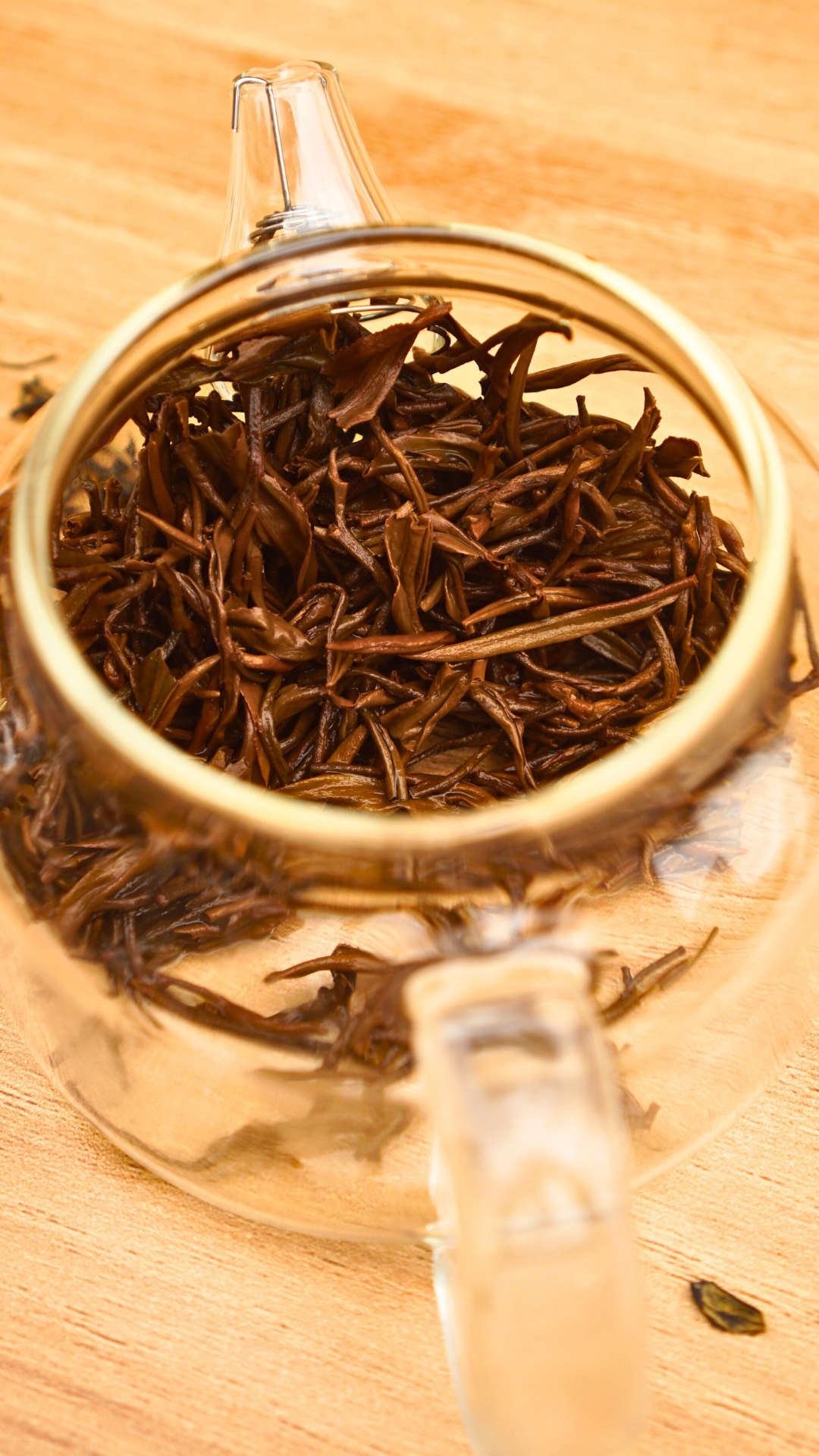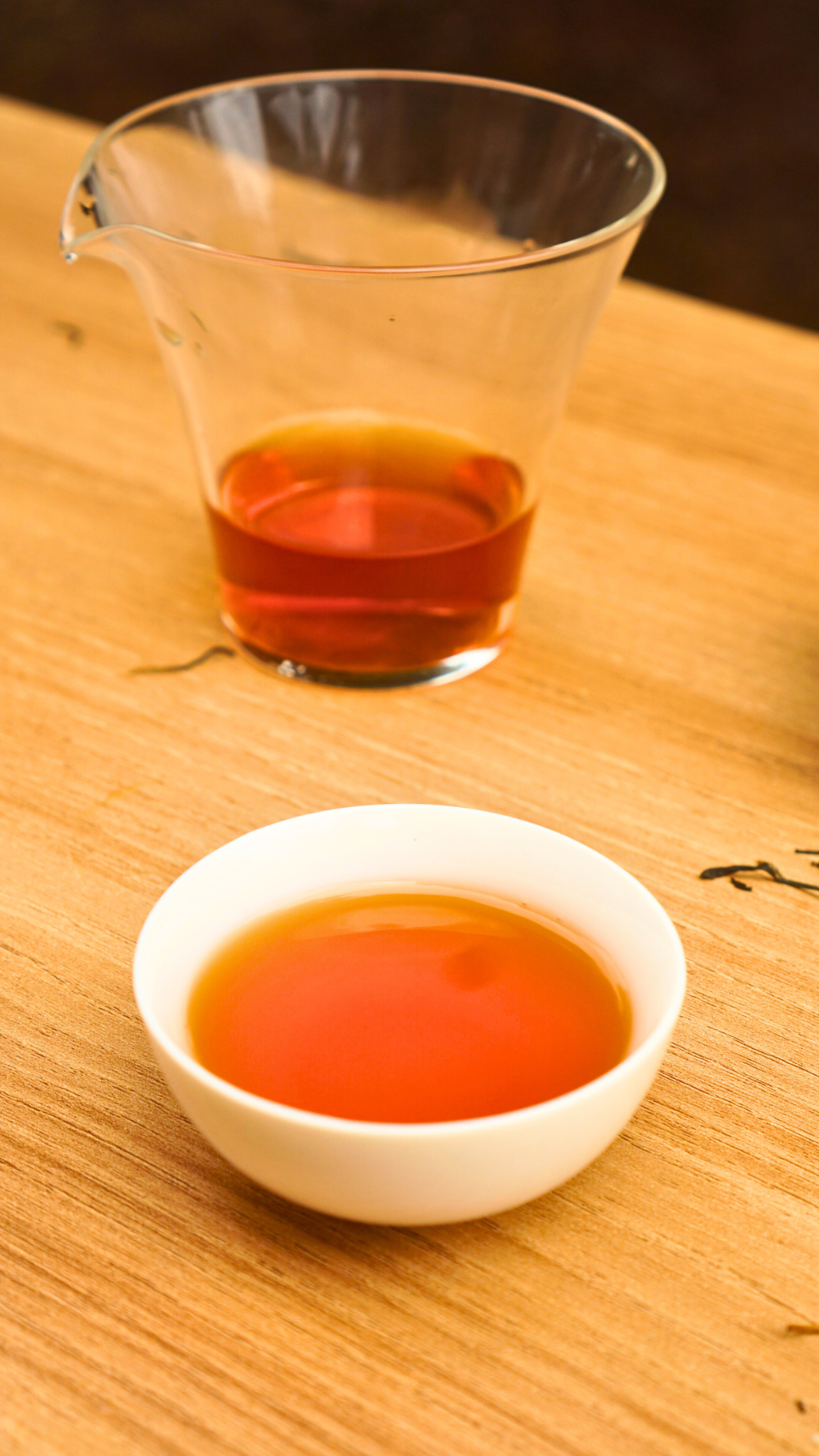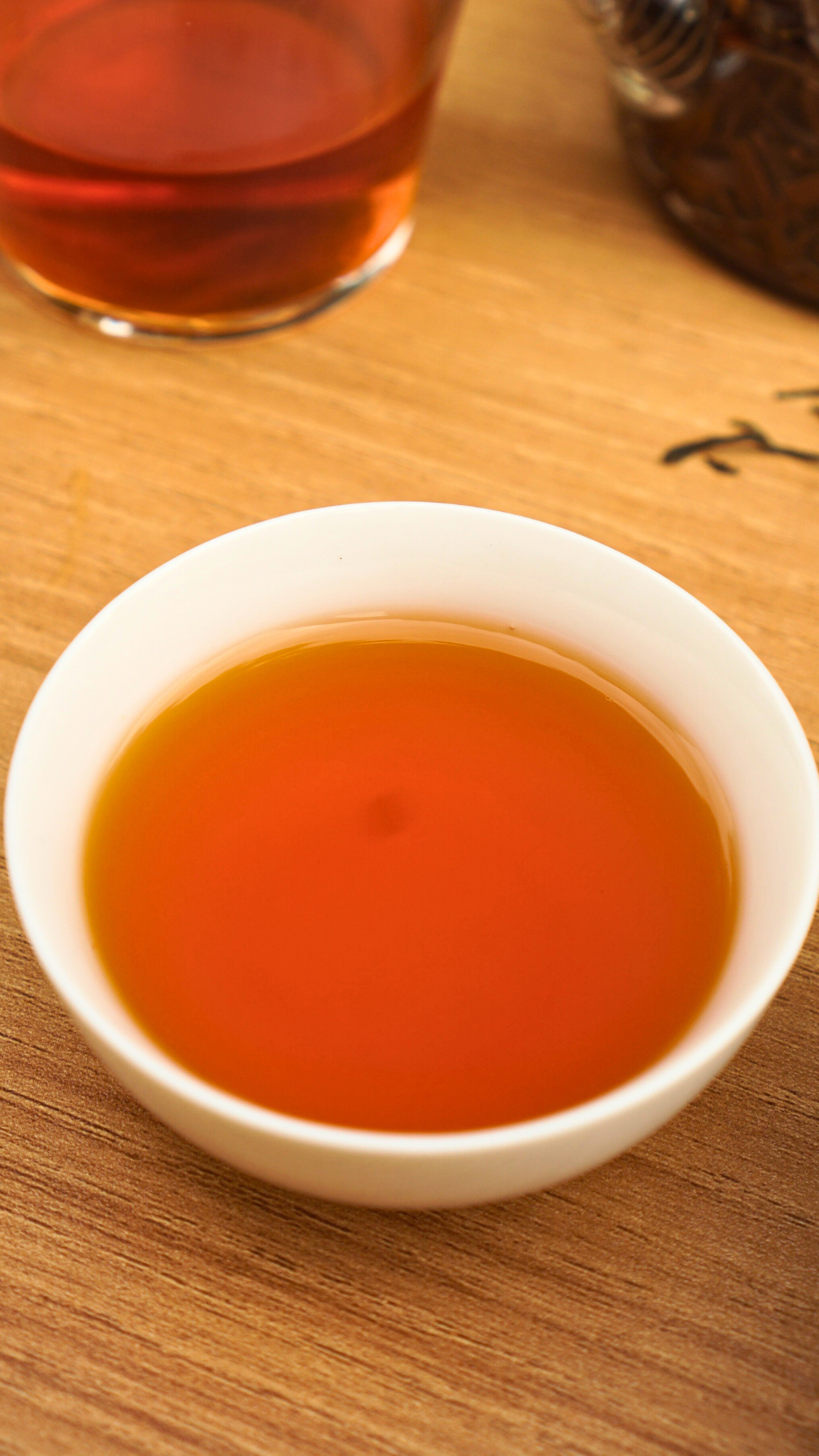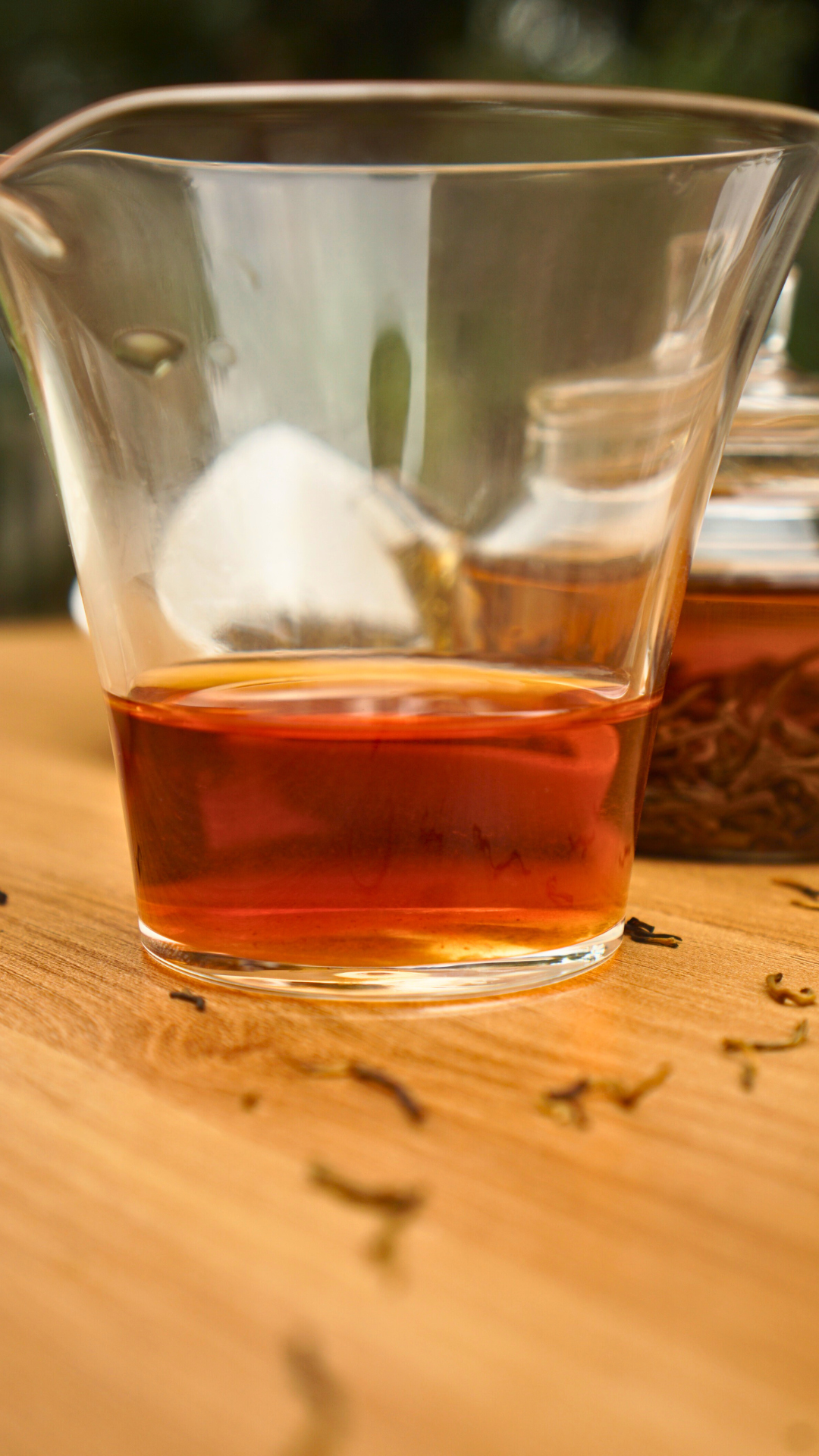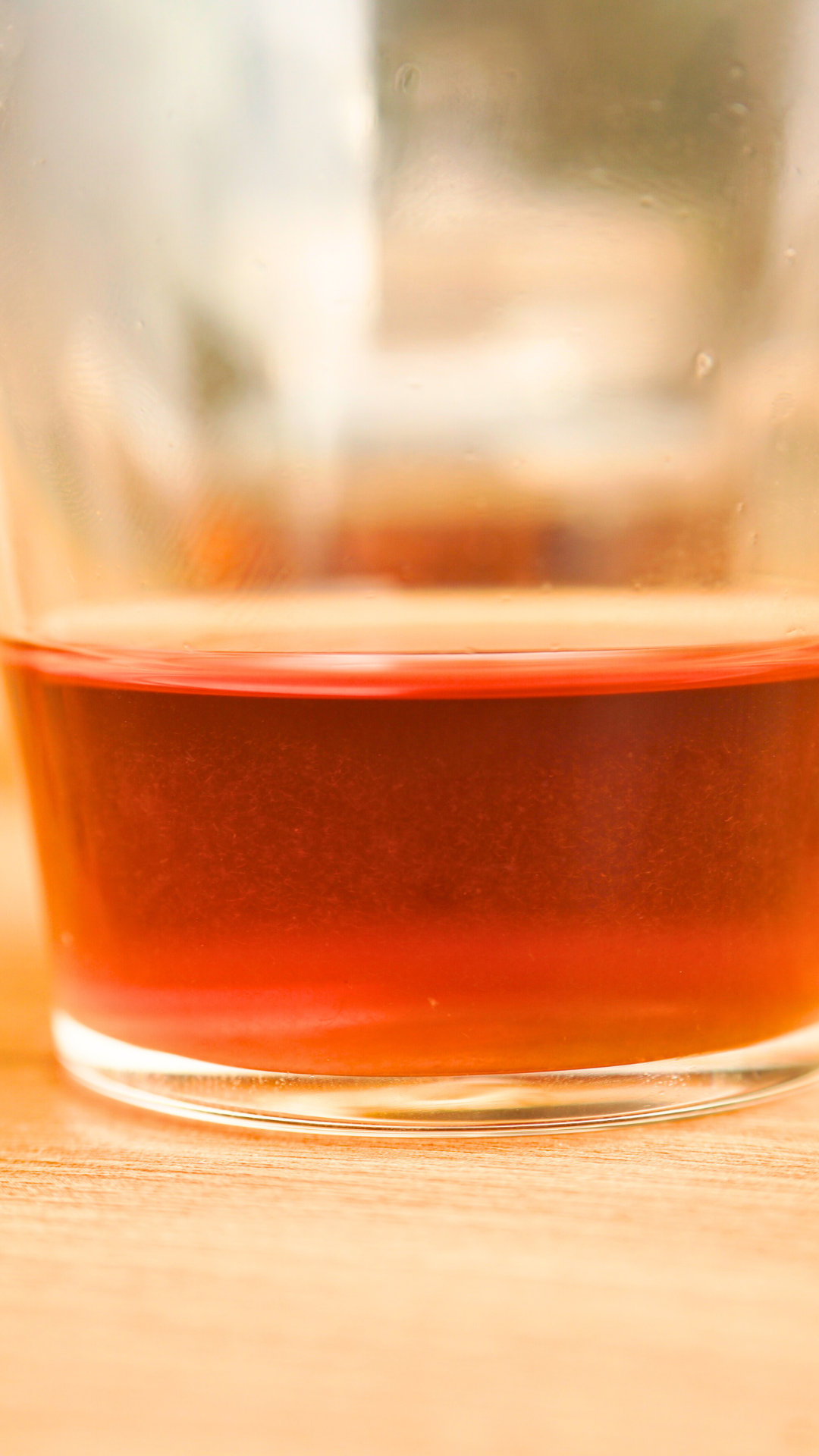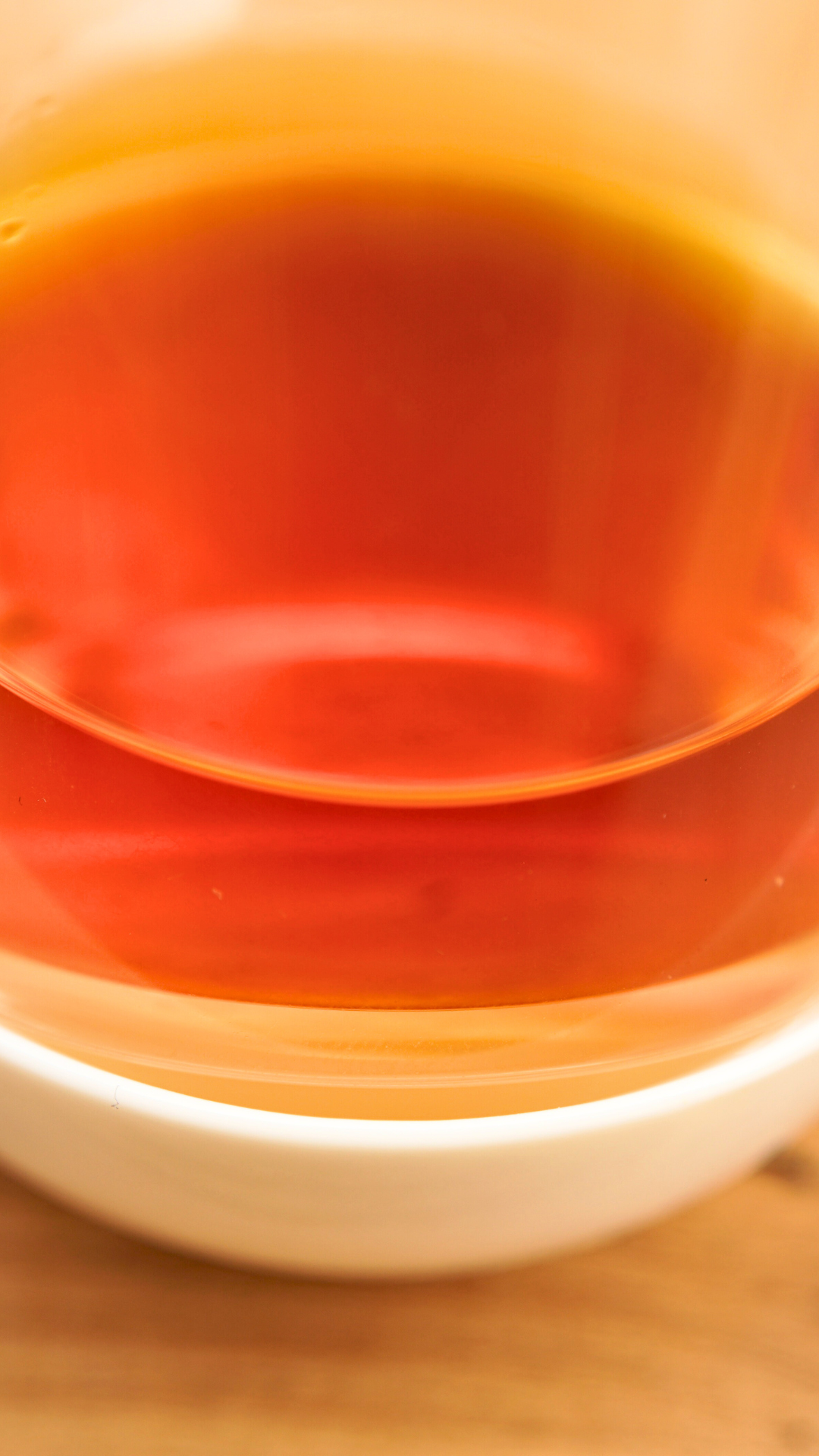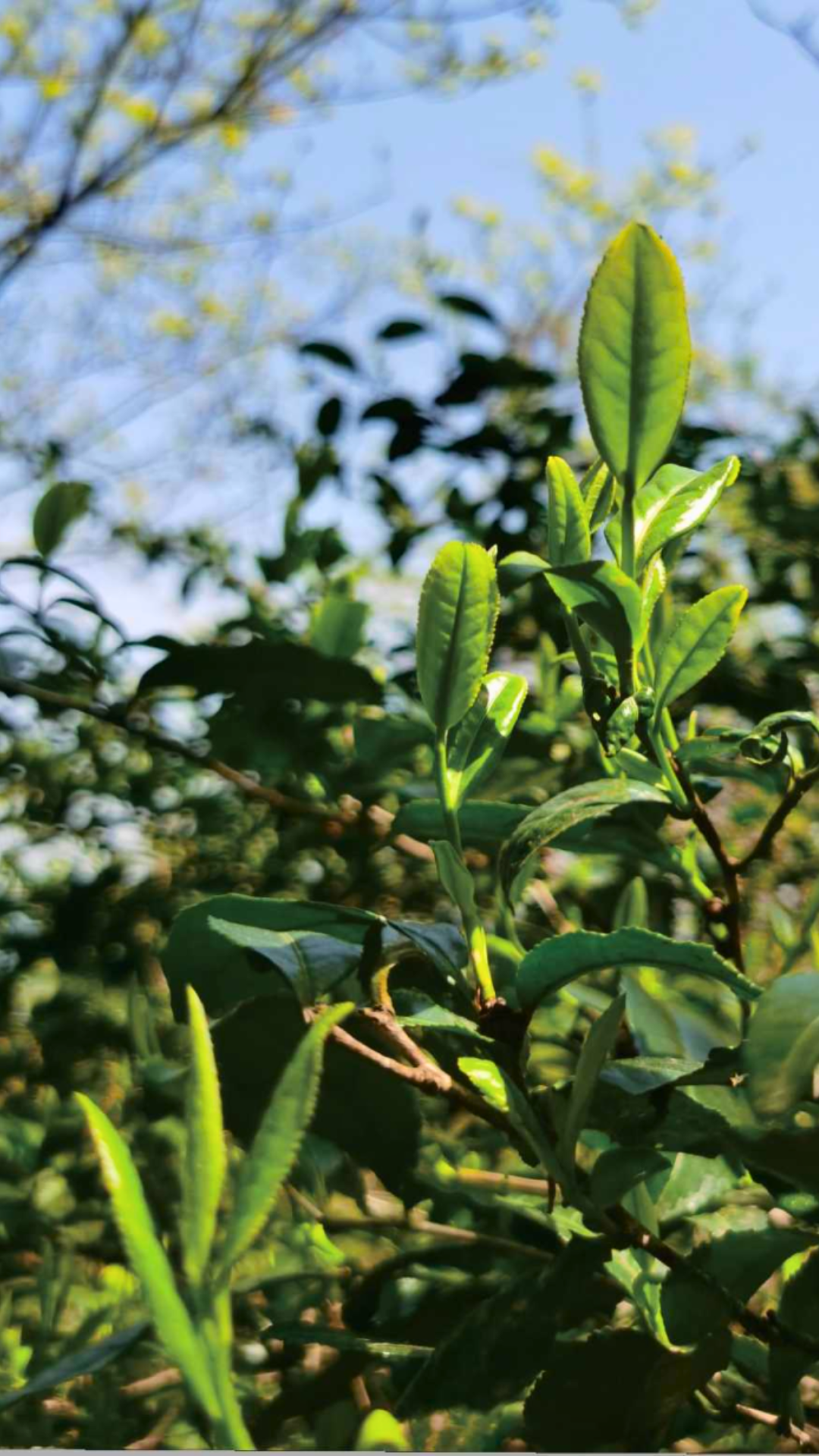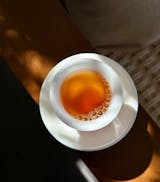Enshi Li Chuan Hong
Enshi Li Chuan Hong
恩施利川红
Our Lichuan Hong(Lichuan black tea) is made from tender buds of high-altitude "Leng Hou Hun" tea trees picked before Qingming. These buds are carefully crafted using the unique processing techniques of Yihong Gongfu black tea.
The dry tea leaves is oily and lustrous, covered with golden hairs, tightly rolled, and emits a unique fragrance of lychee honey that lingers for a long time.
The tea liquor is bright red with distinct golden edges. It has a smooth, velvety, and sweet taste. The first few brews have a honey-sweet and fruity aroma, which gradually transitions to a fresh orchid fragrance as the number of infusions increases.
The tea liquor of Lichuan Hong exhibits a unique “Leng Hou Hun" (冷后浑, Cold Turbidity) phenomenon. When the tea temperature drops below approximately 16°C, it gradually becomes cloudy, presenting a dense, orange-yellow milky appearance, which is very distinctive.
The history of black tea production in Lichuan
Lichuan(利川) has been producing black tea for at least 160 years. According to the "Chinese Tea Encyclopedia"《中国茶经》, Lichuan Gongfu black tea was introduced in the mid-19th century, giving it a history of over 100 years. During the Daoguang period of the Qing Dynasty, Guangdong merchants, purchased black tea in Lichuan and other areas, transporting it via Yuyang Pass(渔洋关) and Wuhan(武汉) for export. Foreign traders praised it as an exceptional product.
In 1876, when Yichang(宜昌) was designated as an international trade port, large quantities of black tea processed in western Hubei and the Wuling mountainous region(武陵山区) were exported through Yichang(宜昌) Port. Foreign traders labeled it "Yihong,"(Yichang Black Tea) and "Lichuan Hong"(利川红茶, Lichuan Black Tea) became the highest-quality representation of Yihong Gongfu black tea.
The unique geographical advantages of Lichuan
Lichuan is located at the mysterious 30 degrees north latitude. Its area, situated at an altitude of 800 to 1,200 meters in the ErGao mountain(二高山) range, is the central production zone for Lichuan black tea. The ErGao mountain(二高山) have less sunlight, more fog, and high humidity, which promotes the increase of beneficial components in tea leaves, such as tea polyphenols, catechins, and amino acids.
The Unique “Leng Hou Hun" (冷后浑, Cold Turbidity) feature of Lichuan Hong
When brewing Lichuan Hong during the cooling process of the tea soup—when temperatures drop below approximately 16°C—the liquor naturally becomes turbid, forming a dense, milky texture in light brown or orange hues. When reheated, the tea liquor becomes bright and clear again. Local tea farmers have named this phenomenon "Leng Hou Hun" (冷后浑, Cold Turbidity).
The top local tea variety used to produce Lichuan Hong is "Leng Hou Hun" (Cold Turbidity), characterized by its emerald-green branches. For the first four years before the tea garden is closed off, the branches grow horizontally. After the fifth year, the branches are forced to grow upward. This variety has a low germination rate, a low survival rate for branch cuttings, and a small production area, resulting in low yield.
Picking and Processing
Picking and Processing
Tea gardens typically harvest in April, with high requirements for leaf tenderness. Spring tea is harvested in 6-7 batches, primarily picking one bud with one to two leaves.

Key processing points for Gong Fu black tea:

Withering: After picking, fresh leaves are placed in withering troughs or withering machines, or can be spread on the floor for natural withering. The purpose of withering is to evaporate appropriate amounts of moisture, making leaves soft and more resilient, promoting internal chemical changes, and eliminating the grassy smell. Generally, withered fresh leaves should reach about 65% water content. Under normal temperature and humidity, natural withering takes 7-8 hours. Withering time is shorter with higher temperatures and lower humidity, and longer in opposite conditions. Proper withering is indicated by shrunken, soft leaves that clump when squeezed but separate when released, darkened color, loss of shine, reduced grass smell, and emerging fragrance. Withering is a crucial processing stage for developing black tea's aroma.

Rolling: The rolling process for strip-style black tea is similar to green tea, but with higher standards - the strip formation rate must exceed 90%, cell destruction rate over 80%, and tea juice should ooze but not drip. Therefore, higher performance is required from rolling machines.

Fermentation: Fermentation is a unique stage in black tea processing, allowing polyphenols to fully oxidize, creating black tea's characteristic color, aroma, and taste. Black tea is called fermented tea because its red liquor and leaves result from fermentation. Currently, Kung Fu black tea processing still follows traditional methods, with a relatively long processing cycle - over 4 hours from rolling to drying. Fermentation actually begins during rolling, with separate fermentation on the floor lasting only about 2 hours. The ideal fermentation temperature is 24-25°C, with humidity above 80%. Air circulation is necessary for complete oxidation. Proper fermentation is achieved when the grassy smell disappears, aroma develops, and leaves turn red.

Drying: Drying is the final step in black tea processing, aimed at stopping fermentation, evaporating moisture, and achieving crude tea product requirements. Black tea drying typically uses drying machines with a two-stage process.
The first stage is called rough drying, the second final drying. Rough drying should achieve 20%-25% moisture content, final drying 4%-6%. Between stages, tea leaves are cooled and allowed to reabsorb some moisture before the second drying. Drying temperatures follow the principle "high for rough drying, low for final drying" - high being 110-120°C, low being 85-95°C.
Brewing
Brewing
White porcelain teaware is best suited for brewing Gong Fu black tea, such as white porcelain gaiwan, white porcelain teapot, white porcelain cups, etc.
First rinse all utensils with hot water, then add about 3-5 grams of black tea, and pour 90°C~95°C hot water into the gaiwan to 2/3 full, then quickly pour it out - commonly known as "tea rinsing."
When pouring with the teapot, the steeping times from the first to tenth infusion should be approximately: 15 seconds, 25 seconds, 35 seconds, 45 seconds, 1 minute, 1 minute 10 seconds, 1 minute 20 seconds, 1 minute 30 seconds, 2 minutes, 2 minutes 30 seconds. The steeping time can be adjusted according to personal preference.
After brewing, it is recommended to pour the tea into white porcelain cups for appreciation. If a golden ring remains on the cup wall for a long time without dissipating, such black tea is considered premium and precious.
Black Tea Storage
Black Tea Storage
The quality of black tea is determined during the fermentation
process, and if stored properly, its quality remains relatively stable. Black tea has a long shelf life that can last for several years.
The key principles for storing black tea are: avoid light exposure, keep sealed, maintain room temperature, and prevent moisture.
1. Storage Container Selection
Although tea often comes with canisters or bags when purchased, it's best to use professional containers for long-term storage. The ideal containers for tea are made of porcelain, stainless steel, or tinplate. Before placing black tea inside, wrap it in plastic bags and remove air from the bags to better preserve the tea's aroma.
2. Storage Environment Conditions
The storage environment directly affects the quality of tea preservation. The optimal storage environment for tea should be dry, room temperature, and away from light. Additionally, avoid humid conditions, as black tea can easily absorb moisture and deteriorate. Direct sunlight will destroy vitamin C in tea leaves and alter their color and taste; high temperatures will accelerate the breakdown of effective components, reducing nutritional value.
3. Storage Duration
Although black tea can be stored for long periods, even under optimal storage conditions where it can maintain its flavor for 3-5 years, it is still recommended to consume it within 1 year.
- Gong Fu Black Tea
- 500g/pouch
- Free Shipping
Couldn't load pickup availability
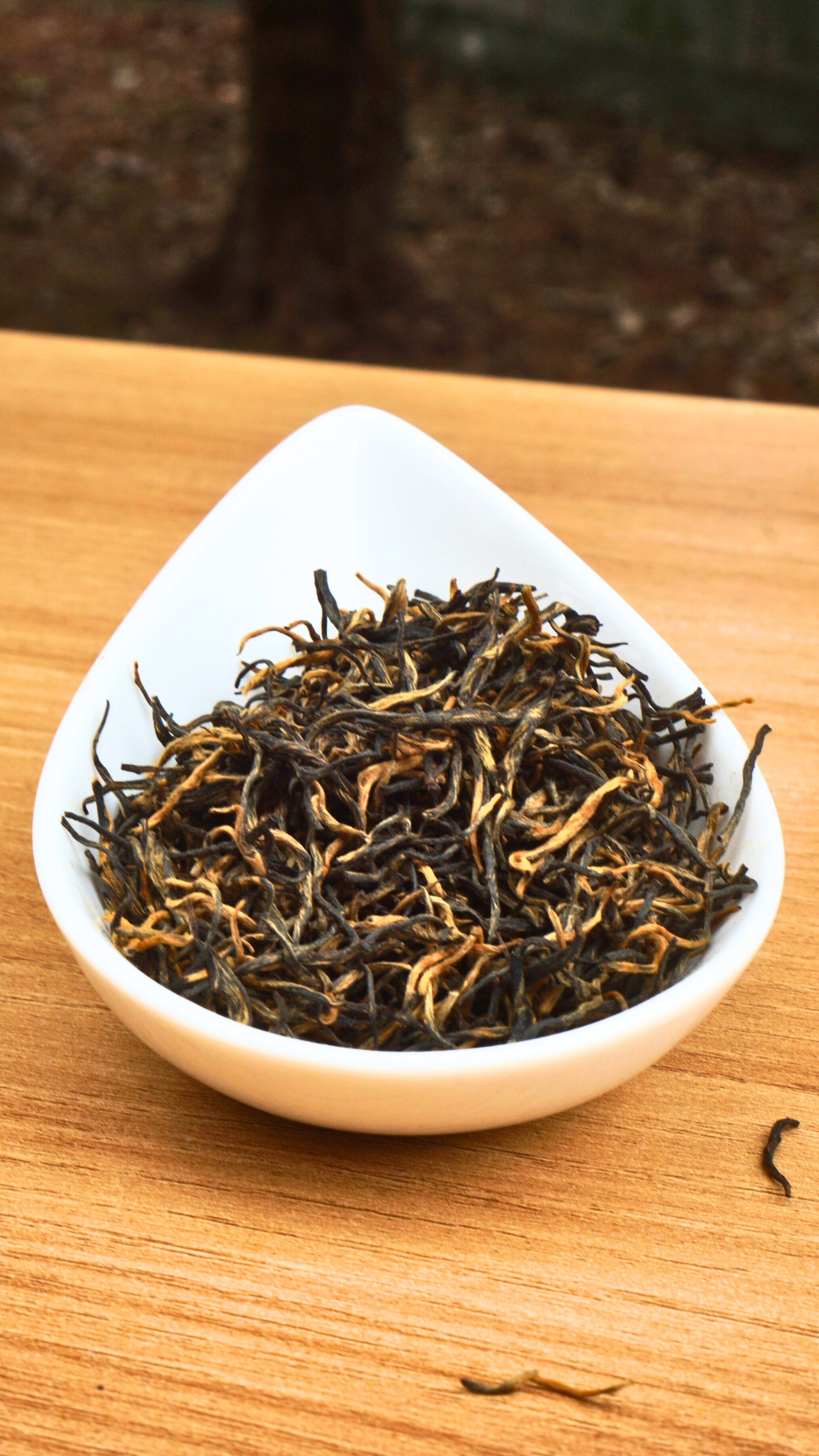
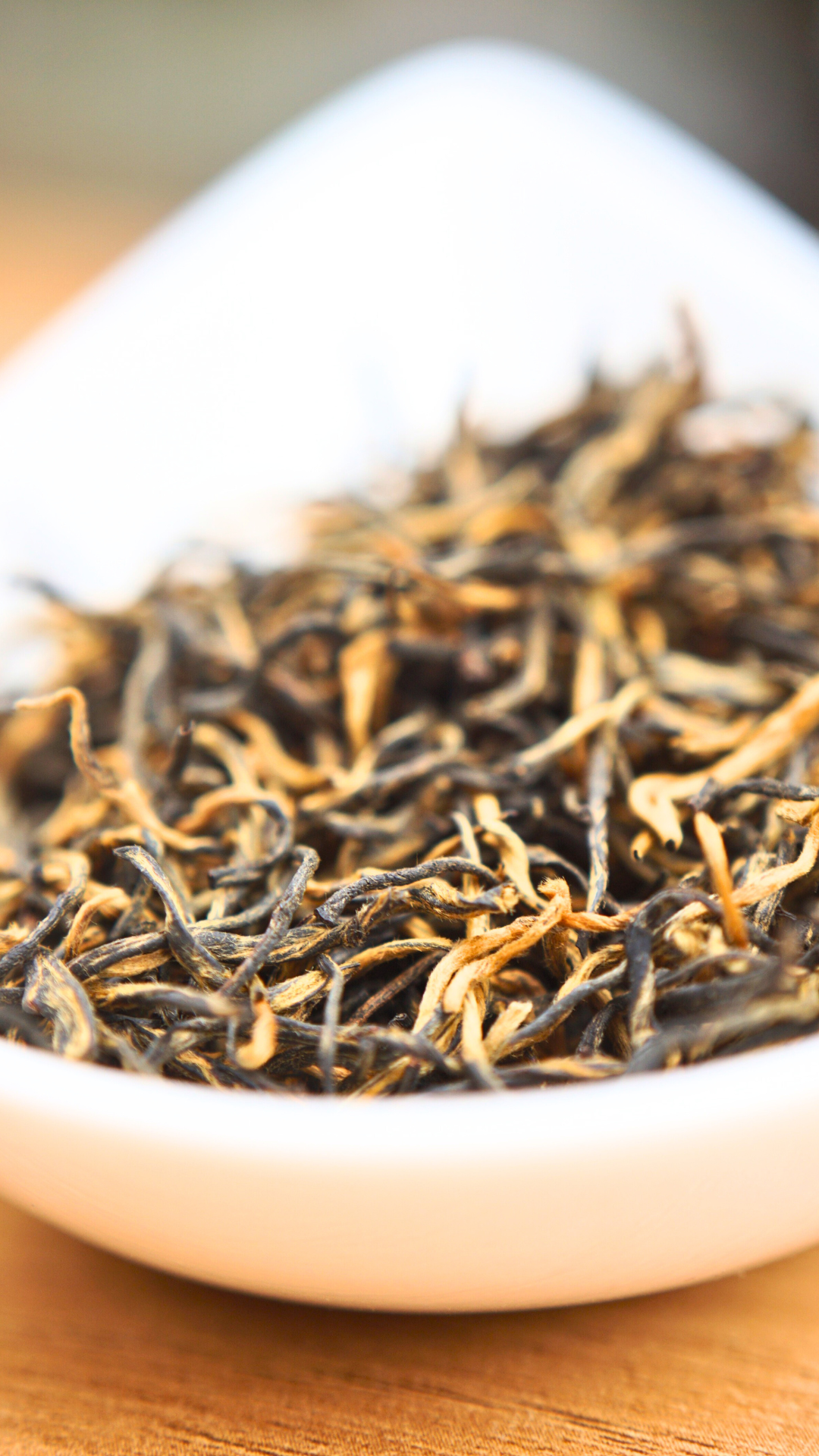
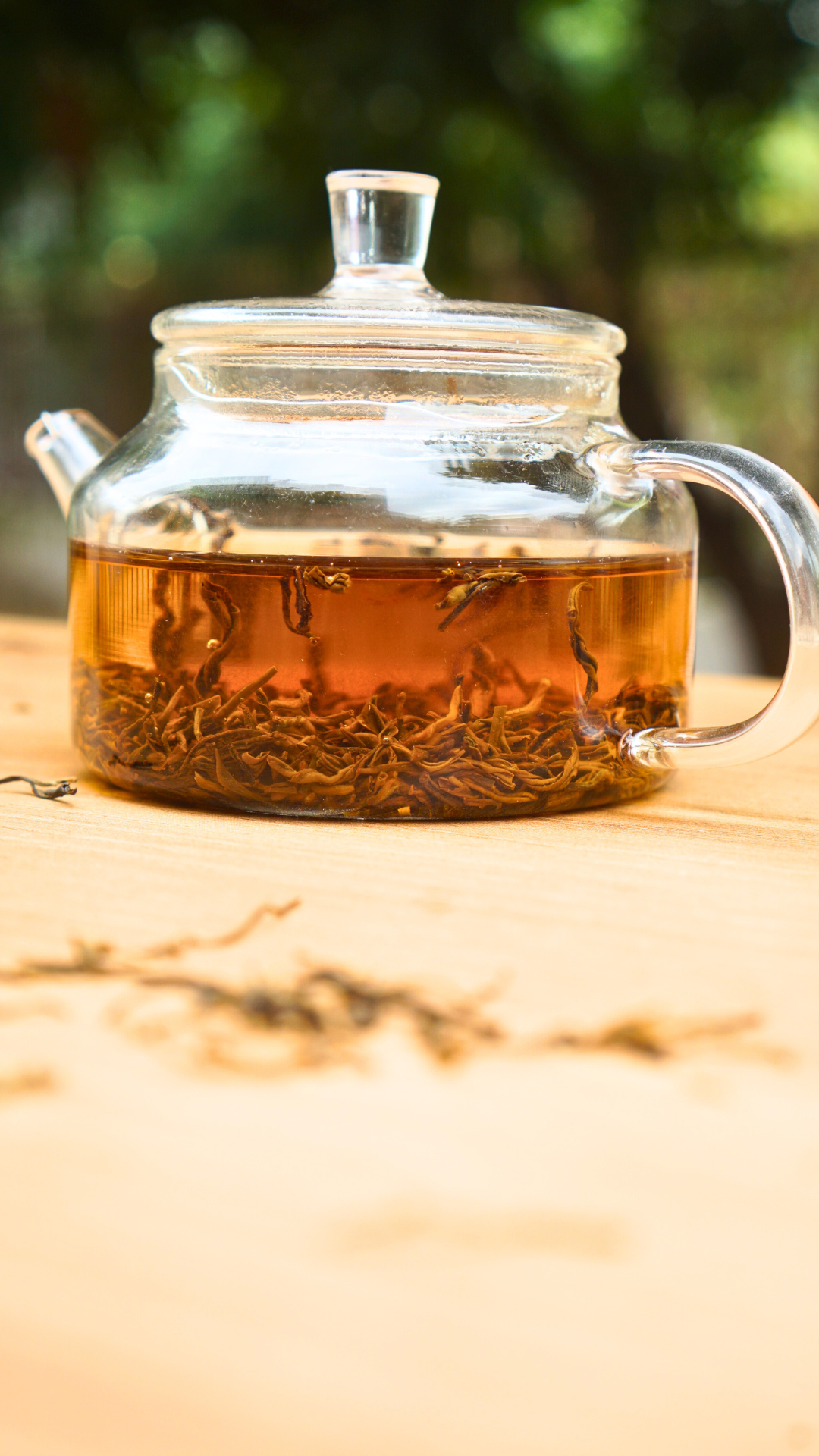
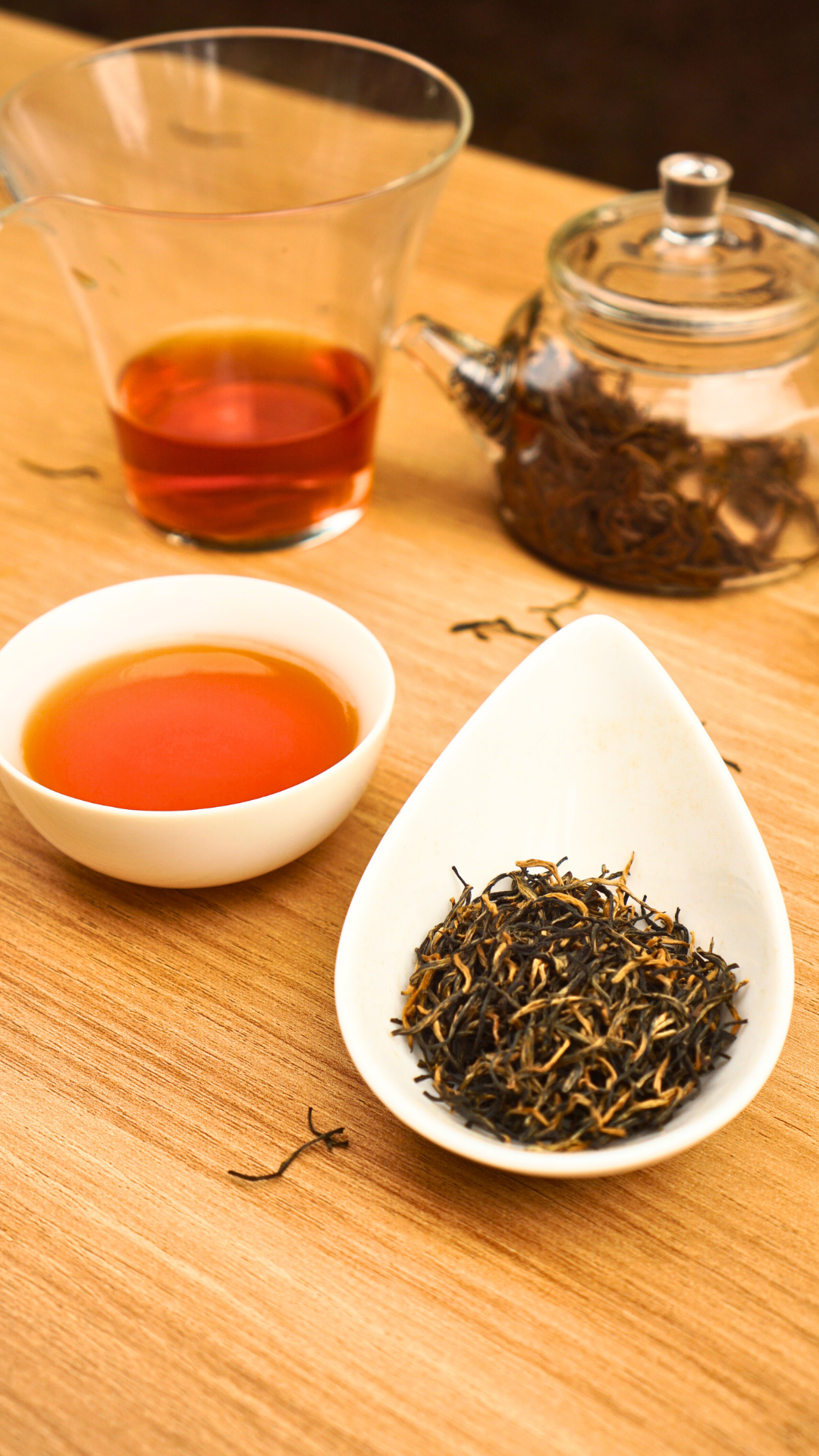
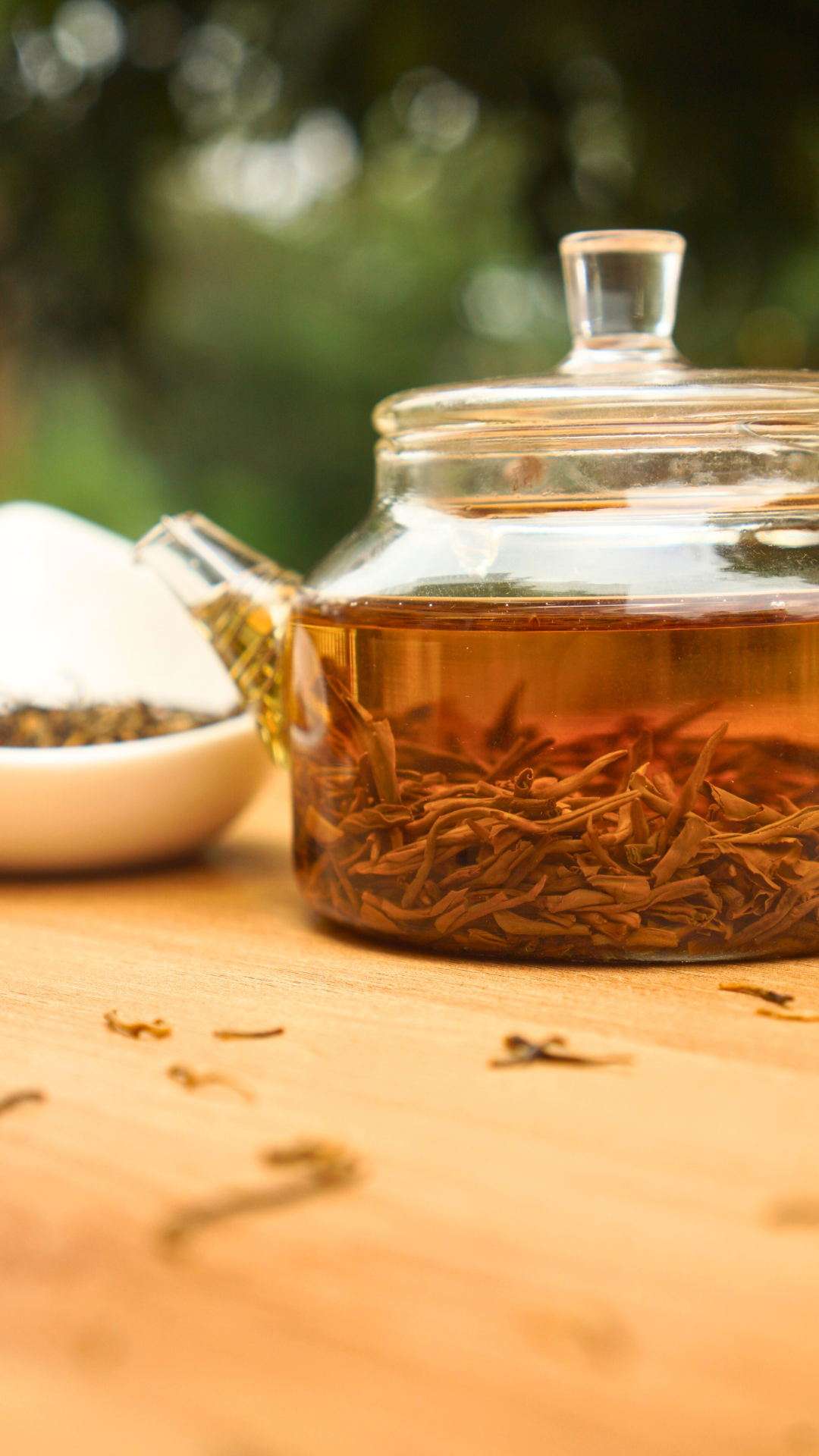
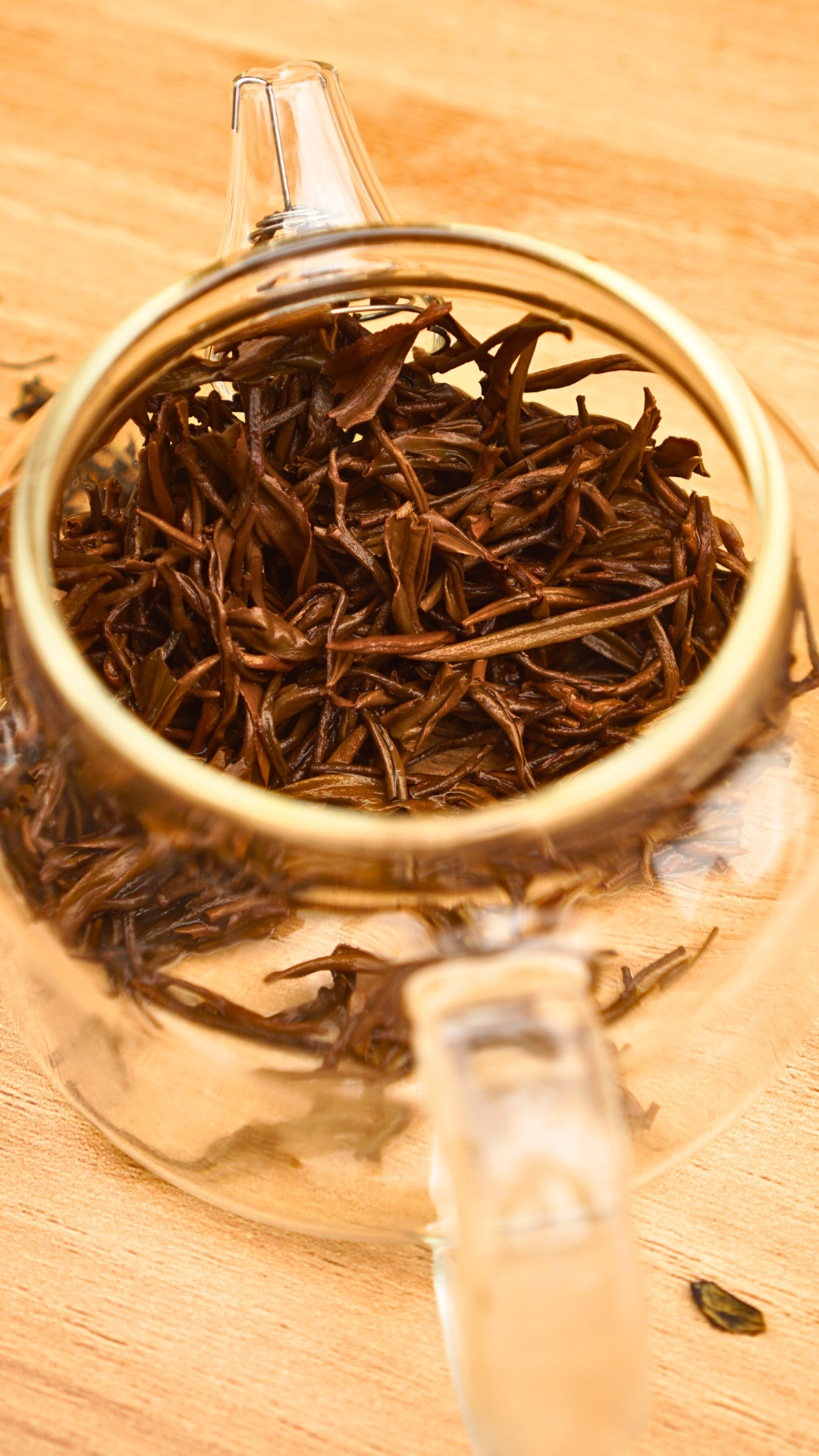
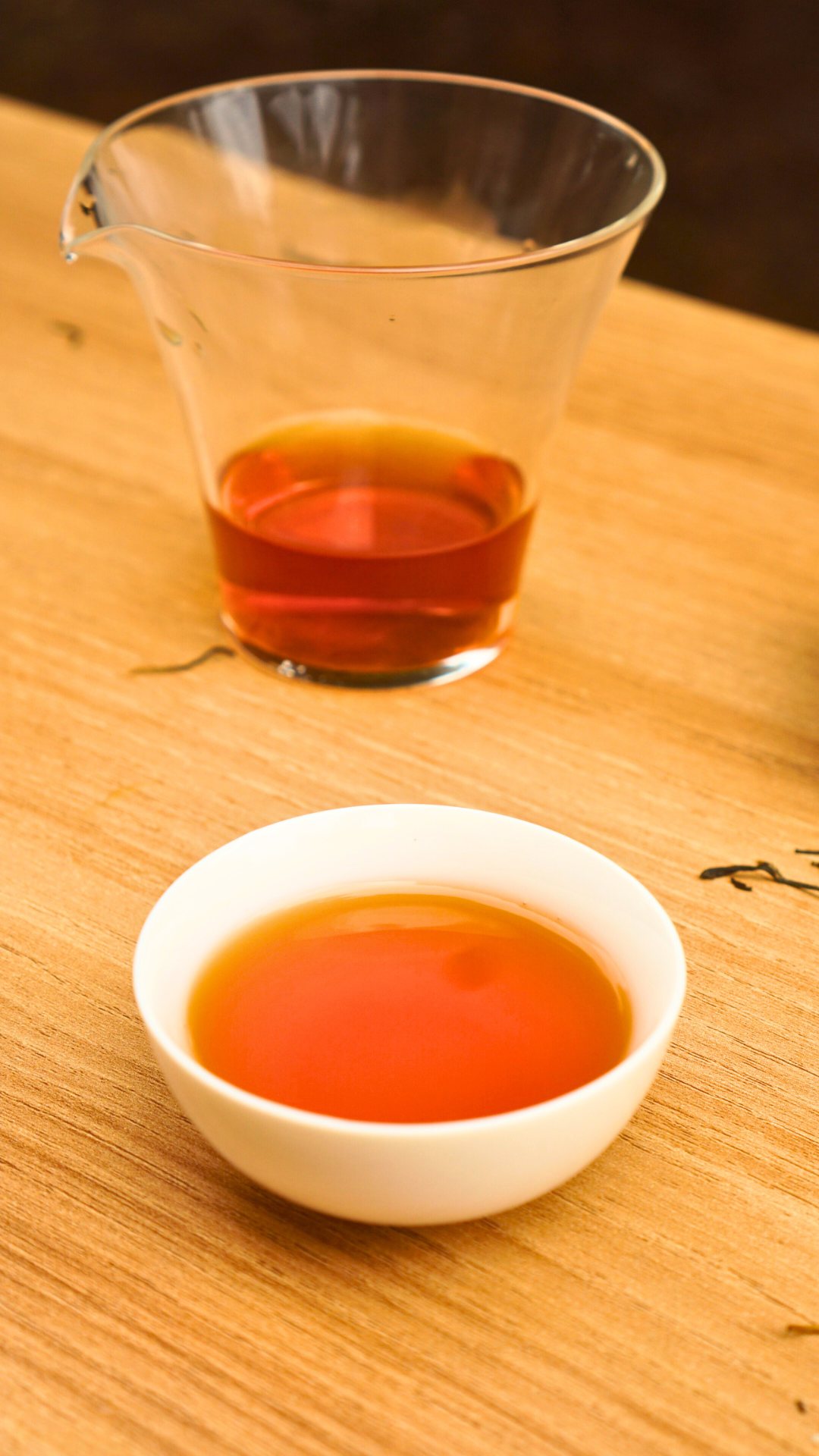
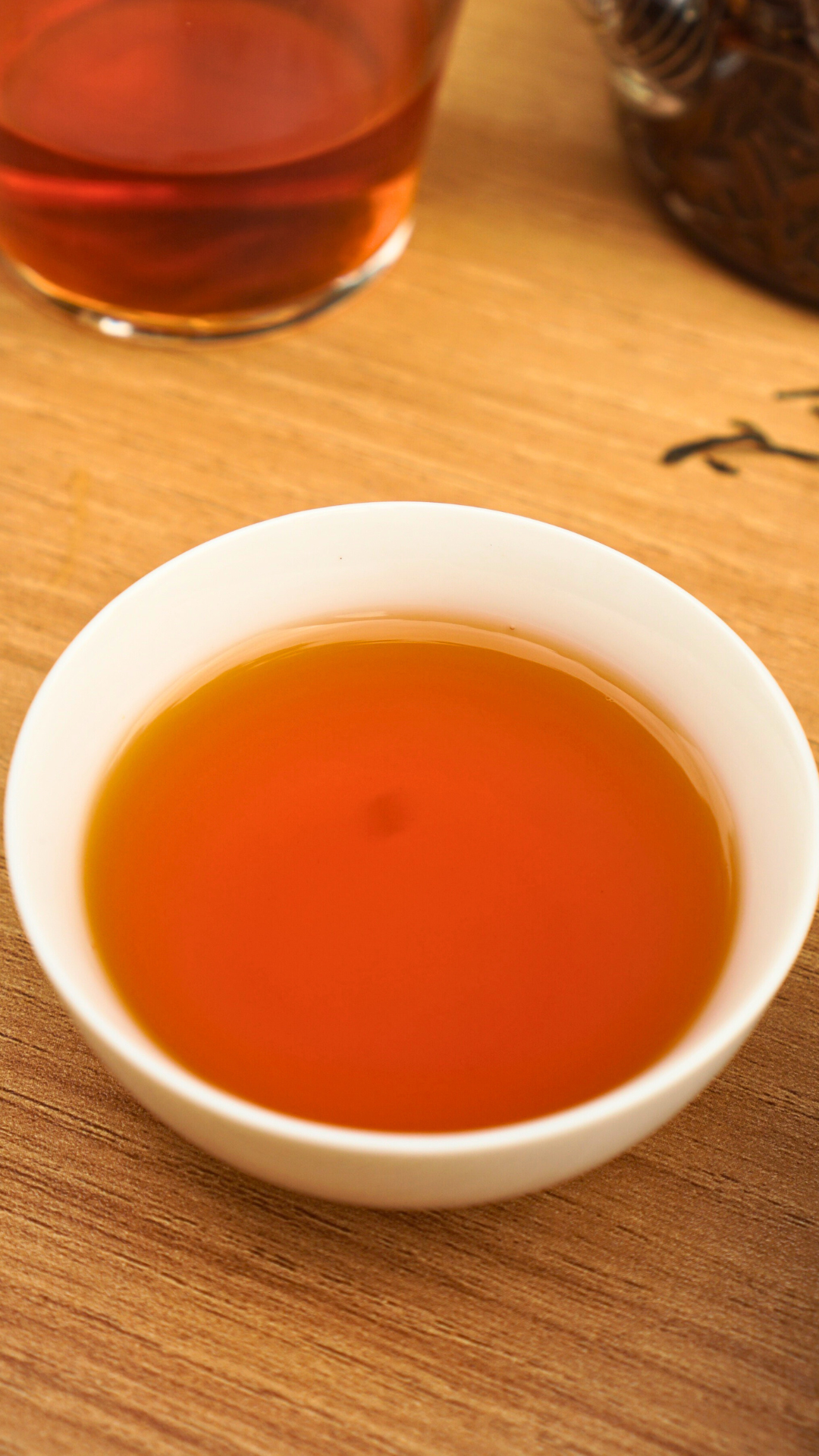
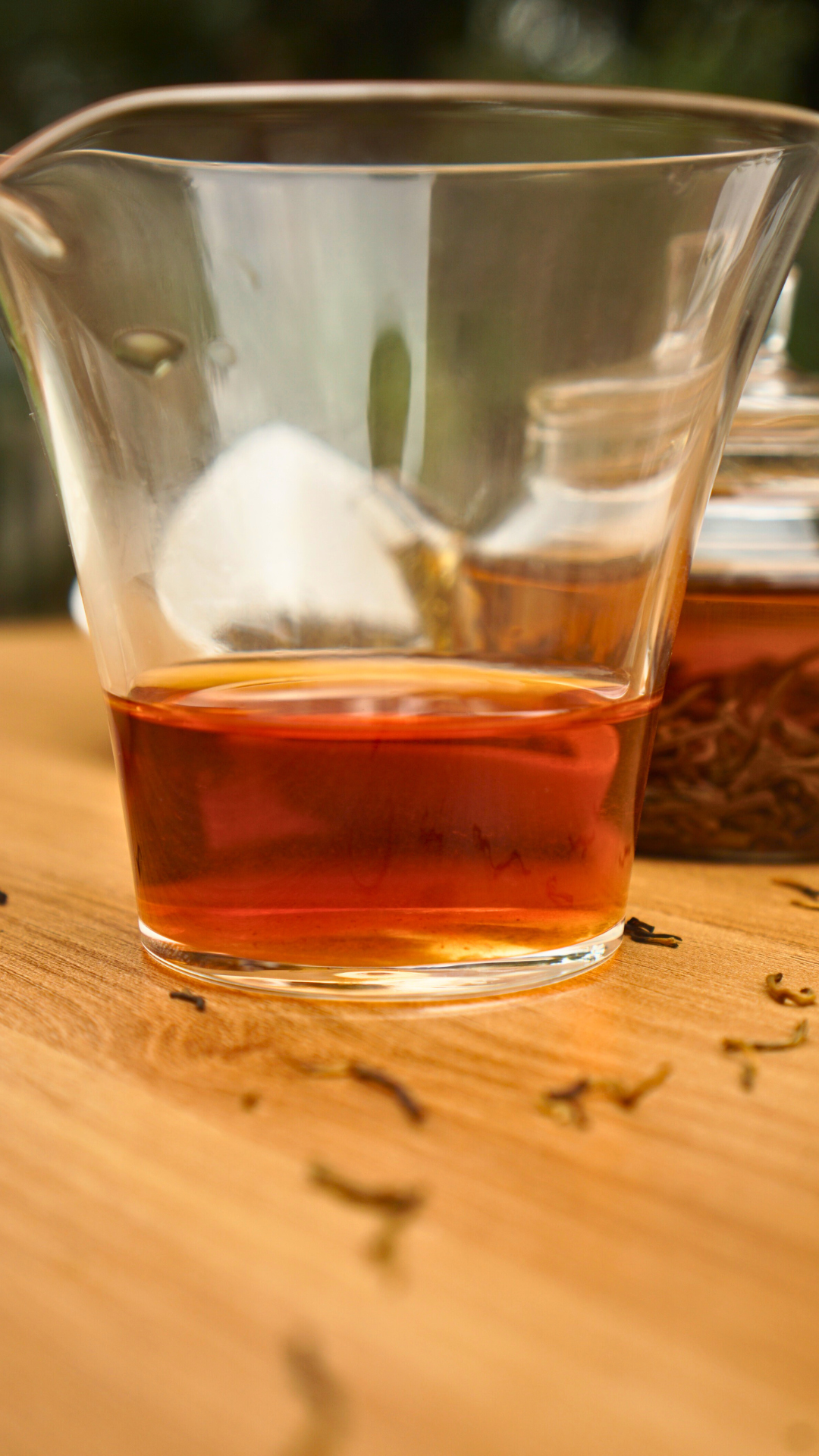
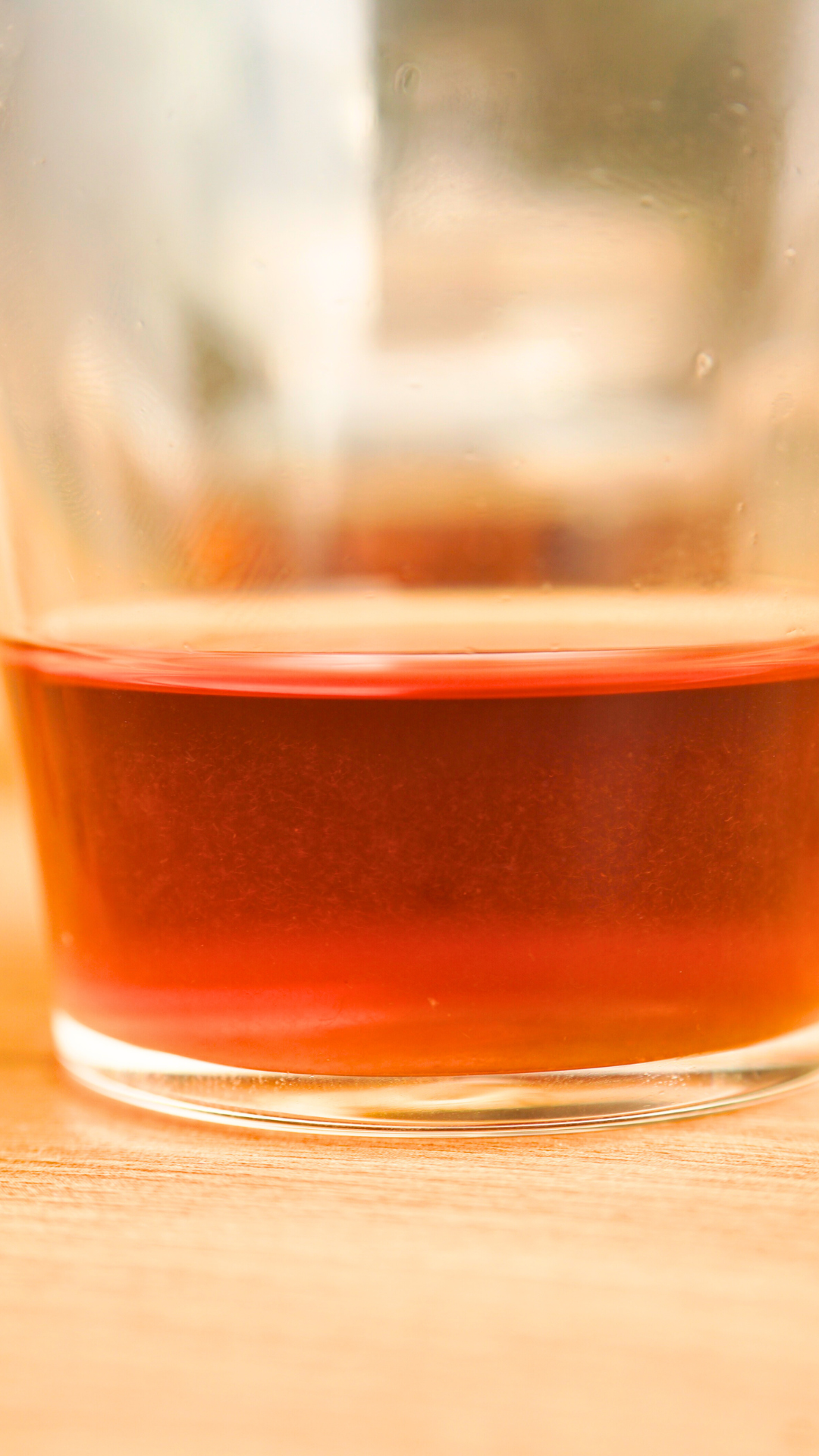
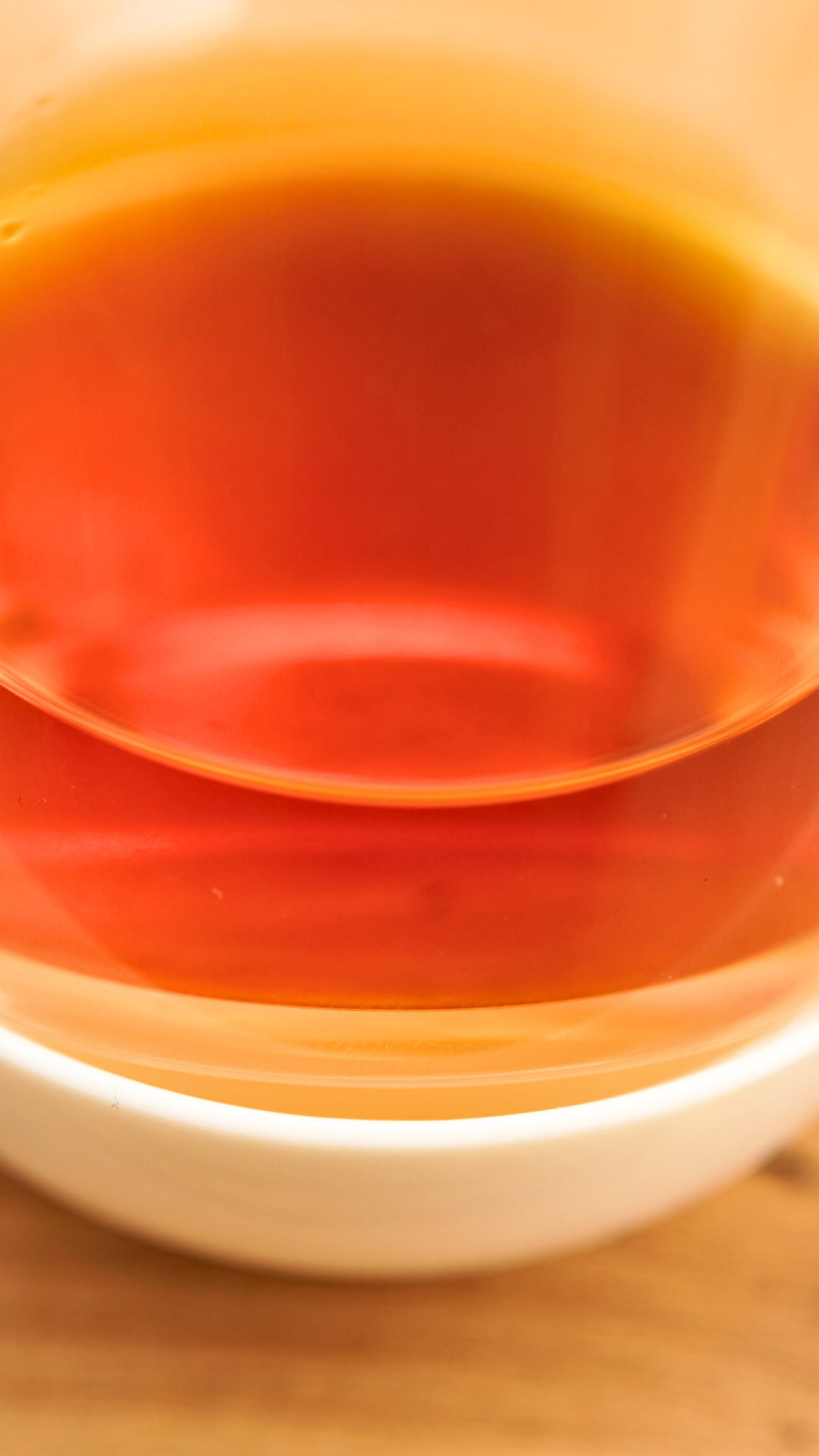
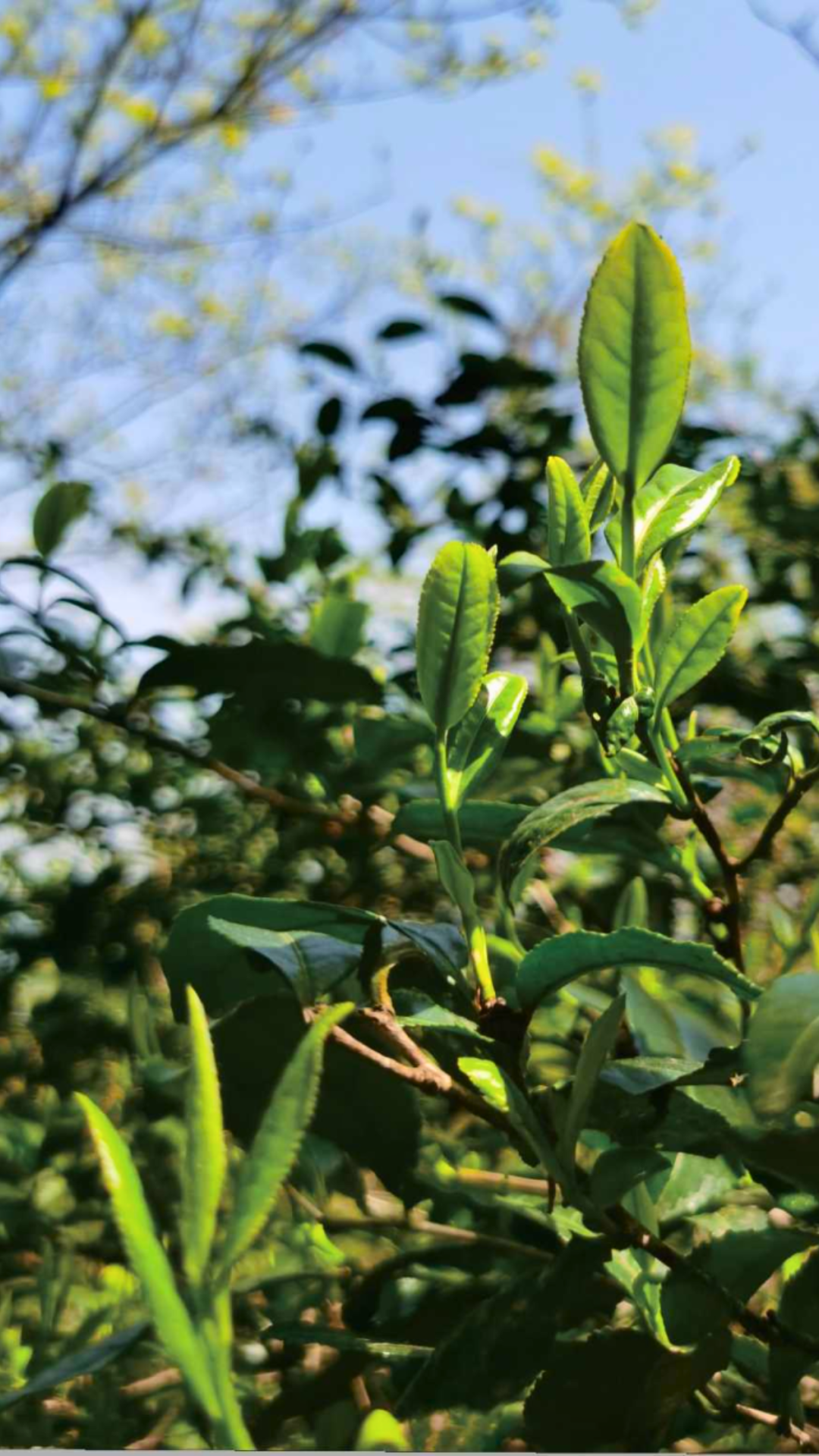
The tea leaves are very tender, and the tea brew becomes rich and flavorful after just a few seconds. It is naturally sweet when enjoyed plain. An excellent black tea.
In 2018, we went to the sang xia in China. On the cruise, a local friend from Hubei treated us to this black tea once. It was this very tea. He specially mentioned "ling hou hun," but at the time, the weather was very hot, so it wasn’t very noticeable. We just thought this black tea tasted amazing. I'm very happy to be able to buy it here this time. I can enjoy this "hong" again—it’s so delicious!

